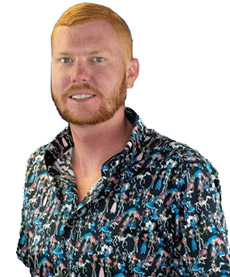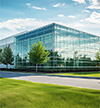As demand for fast, flexible delivery surges in the e-commerce era, Miami-based Filter King is building a national footprint to keep up. The direct-to-consumer HVAC filter manufacturer has opened new facilities in Las Vegas and Pennsylvania, with plans to expand further in 2026. In this conversation, CEO Rick Hoskins walks us through the company’s site selection criteria, facility needs, and workforce strategy — and why simplicity, proximity, and word-of-mouth hiring are at the heart of Filter King’s growth model.
Rick Hoskins is CEO of Filter King, a direct-to-consumer air filter manufacturer that began operations in Miami and now operates out of three national facilities — with more on the way. In this Q&A, he walks us through the company’s location strategy, workforce needs, and facility requirements as Filter King expands its reach in the e-commerce age.
Area Development: You’ve gone from one facility to three in a short time. What’s driving that expansion?
Rick Hoskins: We started Filter King about six years ago, but we only began manufacturing around 2021. Since then, demand has grown fast — we sell on Amazon, Walmart, our own site, and other marketplaces. Our 100,000-square-foot Miami facility filled up fast, so we needed more locations to handle volume and ship faster. We opened in Las Vegas in January and then launched a third facility in Bethlehem, Pennsylvania, just a couple months ago.
AD: Why Bethlehem?
Hoskins: Roughly 30 percent of our orders come from the Northeast. Being in the Lehigh Valley gives us next-day delivery coverage for a huge portion of the population — New York, Philly and Pennsylvania in general, and New Jersey are all within a couple hour drive. On top of that, we’re five minutes from a FedEx hub, which is our main shipping partner. They run seven days a week there. Out west, they don’t run weekends, which hurts speed.
Lehigh Valley also has a legacy of manufacturing prowess. The sector drives the region’s economy, with a $9 billion annual output representing 16% of its nearly $56 billion GDP. Because of this, it has the assets, mainly workforce and accessibility, to support its manufacturing ecosystem, which is made up of over 700 companies.
AD: Are you planning more locations?
Hoskins: Yeah, we’re looking at Dallas for early next year. After that, probably Illinois. The goal is to get regional coverage so we can reach every customer in the country in one day. That’s the dream.
AD: What criteria are you using when selecting a new site?
Hoskins: First and foremost is proximity to customers — next-day coverage is the driver. After that, labor cost and labor availability. Our work is very manual. It’s like assembling pizza boxes all day, gluing the frame, inserting filter media, boxing and shipping. We need people who can show up and do consistent work, and we hire direct — no staffing firms.
Living costs matter too. If your workforce can’t afford to live near your facility, you’re going to struggle. That’s one of the reasons Lehigh Valley worked well for us. It’s not as expensive as New Jersey, but close enough to all the markets we need. Housing there is about 9.5% lower than the U.S. average.

AD: Were these sites move-in ready or did they need build-to-suit?
Hoskins: Pretty much move-in ready. We’re not high energy users, and we don’t need a lot of ceiling height. Filters are large and light — stacking them doesn’t do much for us. In fact, being able to operate at ground level is more efficient.
The basics are what we care about: good lighting, HVAC, bathrooms, parking. Vegas and Miami are fully air-conditioned. Pennsylvania isn’t yet — it’s cooler up there — but we’ll probably need heat before winter. We're evaluating that now.
AD: How do you handle workforce development in new locations?
Hoskins: So far, we’ve been able to recruit quickly. We post jobs on Indeed and Craigslist, and then it becomes word of mouth. That’s always a good sign — when your workers want to bring in their friends, it means they like where they work.
We’d be open to working with community colleges or local programs, but we haven’t plugged into that yet. The area has 11 colleges and universities and three career and vocational-technical schools though, so if there’s a strong partner in the region, I’d love to hear from them.
AD: What’s the organizational structure inside the facility?
Hoskins: We break it down into four departments: production, which is building filters; customization, which is cutting standard filters down to unique sizes; shipping, which uses machines to generate custom boxes for each order; and warehousing.
In Miami, we’ve got about 80 people just in production. Shipping runs seven days a week. Bethlehem is just getting started — about 30 people now — but we expect to hit 120 in the next couple of years.
AD: Any interest in automation or robotics?
Hoskins: We’ll explore automation for our higher-volume SKUs, but our bread and butter is custom orders. We stock 350 sizes but can make 800,000 combinations. It’s niche work, and it’s not easily automated. We might bring on automation, but not to replace workers — just to expand into a different product line.
AD: You mentioned some logistics and system hurdles as you grew. Can you elaborate?
Hoskins: Our original systems were homegrown because off-the-shelf ERPs couldn’t handle all the exceptions we deal with. If a customer orders a 6x20 filter and we cut it from a 20x20 stock item, you’d need 50 screens just to log that in most ERPs. Multiply that by thousands of orders a day, and you’ve got a nightmare.
Our system worked fine for one facility. But once we added Vegas and Bethlehem, we had to redesign it. We’ve recently hired a supply chain lead to manage inventory across sites, and it’s already a huge improvement.
AD: Is your supply chain domestic?
Hoskins: Almost entirely. Our glue, metal, and filter media are all made in the U.S. The only exception is our cardboard die cuts — the frame material — which comes in giant 5,000-pound rolls from Sweden. We get a few truckloads of that per day, but it’s the only foreign input.
AD: How are you maintaining brand quality and speed as you scale?
Hoskins: Culture helps. We recognize employees monthly. At one year, they get a blue apron with their name on it. At two years, a red one. We cater lunch. We give out bonuses. Everyone claps for each other. That stuff matters.
We’re also scaling our commercial and wholesale sales. A new sales team in Miami is targeting landlords and property managers, and we’re starting to build out the same capability in Pennsylvania.
AD: Any advice to site selectors or economic development leaders who want to attract a company like yours?
Hoskins: Make it easy to get in, staff up, and ship out. We don’t need a custom facility — we need a flexible, affordable one that’s close to our customers. We’re growing fast, and the easier you make it for us to open, the faster we’ll hire.


